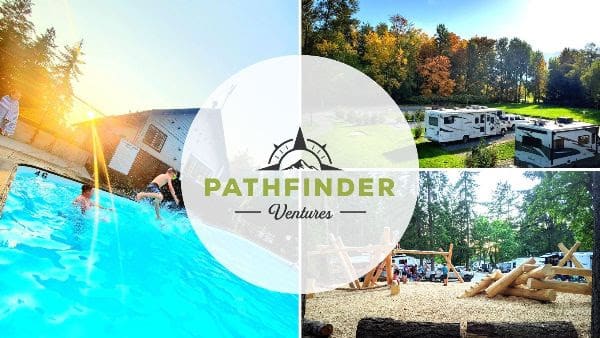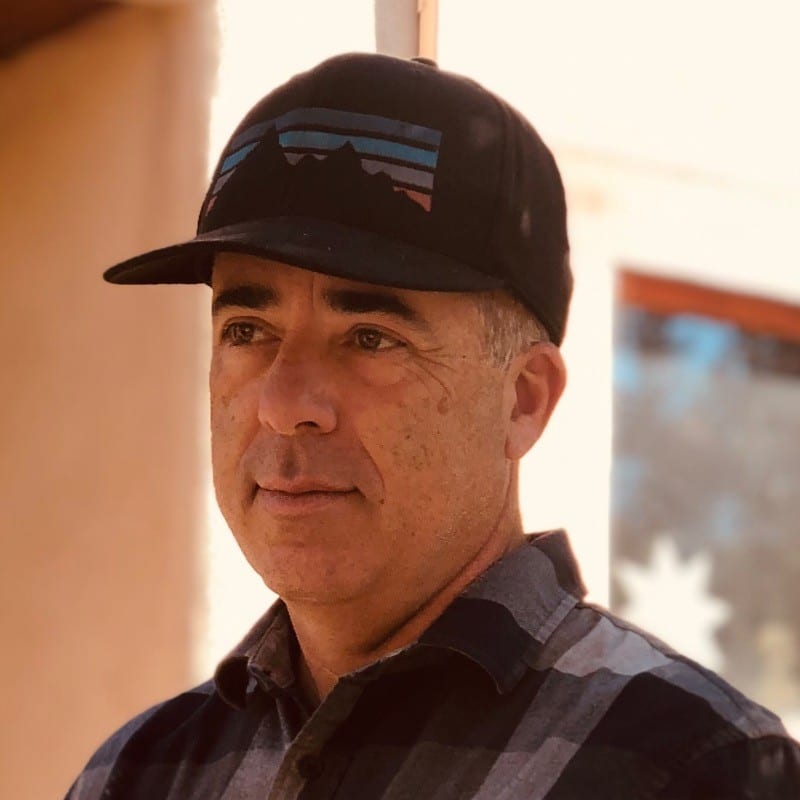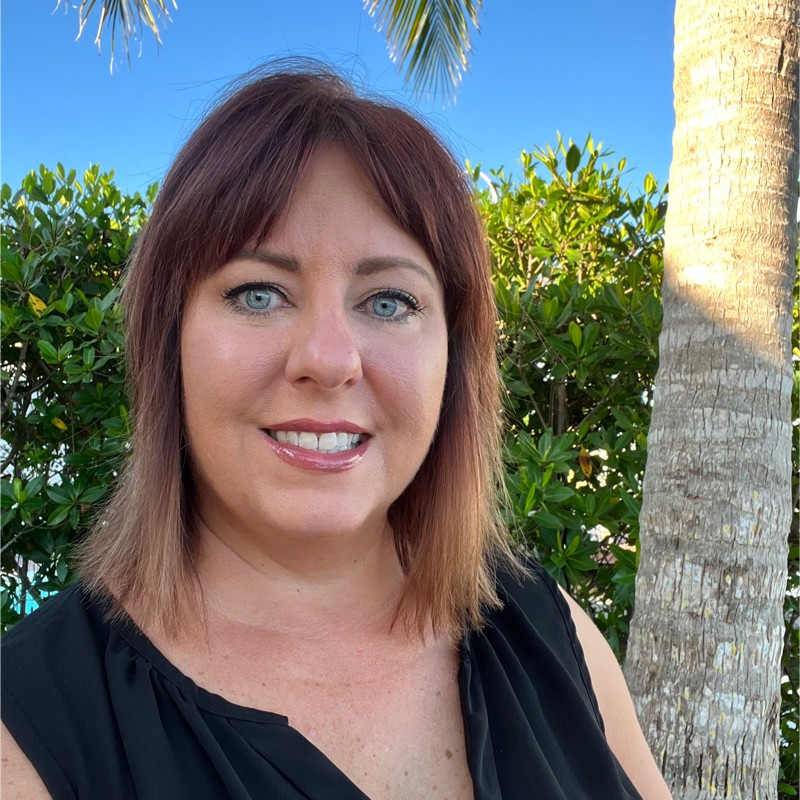RV Parks Attract Billions in Public, Private Investment – RVBusiness – Breaking RV Industry News

As more investment groups enter the market, companies like Blue Water Development are finding that their expertise in operating campgrounds and RV parks is in high demand. Credit: Shore Point Cottages
Campgrounds and RV parks have attracted billions of dollars in new investment from public and private investors, both during and after the COVID-19 pandemic.
Investors are not only purchasing existing parks and fixing them up, often by adding increasingly upscale amenities and rental accommodations, but they are building new parks in markets where additional RV sites are in particularly high demand.
But as investor interest in the private parks has increased, so, too, has the demand for third-party management and consulting firms with expertise in campground and RV park operations.
Ocean City, Md.-based Blue Water Development is one such example, having developed a client base that includes major institutional investors, including Sun Outdoors, Apollo Global Management and HTR Investors, an affiliate of The Davis Companies.
By late 2023, according to Blue Water CEO Todd Burbage, the company’s 1,600 employees will be managing 85 family destination campgrounds and RV resorts in 25 states that provide the full range of amenities and onsite entertainment as well as glamping accommodations. Its park management clients include 13 Sun Outdoors locations, six Yogi Bear’s Jellystone Park Camp-Resorts locations and six Kampgrounds of America Inc. campgrounds.
But as investor interest in the private park business continues to expand, it’s creating new business opportunities for companies with expertise in managing campgrounds and RV resorts.

Todd Burbage
“A lot of investors are excited to get into the camping and glamping space, and they are demanding more sophisticated management services. Lenders are also requiring properties to have capable third-party management firms in place before they will sign the loans,” said Mike Harrison, COO of CRR Hospitality in Phoenix, Ariz., one of a growing number of companies that are marketing its park management services to investor groups. “In the hotel world, lenders won’t sign loans unless major third-party management firms are involved in the transaction. Investors need third-party management firms, the third-party management firms need the investors, and everybody needs the banks. I think it will continue to evolve this way.”
CRR currently owns and operates four RV resorts in California, Arizona and South Carolina with a fifth resort opening in Buckeye, Ariz., next year. But Harrison said CRR has sufficient staffing with expertise in RV park operations to begin marketing its park management services to other firms this year. CRR had a booth at the Glamping Show Americas in Aurora, Colo., in October and received “considerable inquiries.”
Other existing RV park operators in the U.S. and Canada are also beginning to market themselves as third-party management companies. These include Fort Langley, British Columbia-based Pathfinder Ventures, which recently started providing third-party management services so that other RV park owners can take advantage of the park management infrastructure Pathfinder already has in place.
“Pathfinder services 20,000 plus customers in B.C. every year, so there is an advantage to being included in our network,” said Joe Bleackley, founder and CEO of Pathfinder, which operates four RV resorts, RV communities and campgrounds in British Columbia under the “Pathfinder Camp-Resorts” name.

Pathfinder Ventures logo
Other companies now offering third-party management services include Q Hospitality Management in Missoula, Mont., a hotel management company that has been focusing on offering third-party outdoor hospitality management services since May, said Quentin Incao, the company’s CEO.
“Our goal in deciding to do so was ultimately because of our love of hospitality, creating experiences and meeting people, but more importantly because we believe that we bring a different dynamic and focus, a strong attention to detail and service levels, and because of our use of cloud-based technologies, processes and procedures, (and) revenue management/dynamic pricing, all from years spent operating in the hotel industry,” Incao said.
Q Hospitality Management was involved early on in providing a variety of consulting services for Bay Point Landing in Coos Bay, Ore. in 2019 and 2020. The company has also spent the past few years consulting for several companies that are developing lodging and glamping resorts across the country, some of which are expected to open next year.
Of course, other companies have been managing large portfolios of campgrounds and RV parks for many years, including Advanced Outdoor Solutions (AOS) in Cape Coral, Fla., and Horizon Outdoor Hospitality in Castle Rock, Colo.
AOS has been managing private parks for 10 years. The company currently has over 600 employees who manage a portfolio that includes 58 properties in 23 states with nearly 7,200 sites, including RV and tent sites as well as glamping and rental accommodations, hotel/motel rooms and boat slips.

Quentin Incao
Rachel Godbout, AOS’s COO, sees several factors driving demand for third-party management companies.
“One is investors coming into the space (who) do not know how or want to manage the property. Another driver is lenders requiring new people coming into the industry to have a management company so that the bank feels more secure in their lending. A lesser, but still prevalent driver,” she said, “is small groups coming into the space that want to learn from the management company and then run it themselves.”
AOS, for its part, has continued to improve the range and sophistication of the park management services it offers.
“From the management perspective, we handle all park operations,” Godbout said. “That means we manage property accounting; reporting; revenue management; marketing; (including) paid, organic, website and branding; operations; staffing; HR, software implementation and maintenance; training; vendor relations; licensing and permitting; legal compliance; and call center services. We are designed to run the assets successfully and allow the owner to make money without worry.”
Godbout added, “We have been able to create proprietary tools, such as our dashboards, that give the owners and internal teams a competitive edge. If we see a need in the industry, we create a solution for our owners. That has allowed us to grow significantly and increase our staff nationwide.”
While some parks may already have employees who excel at certain park management functions, Godbout says AOS’ preference is to manage every aspect of a property.

Rachel Godbout
“There have been a few amendments to that in cases where we can still do what we need to be successful, but we strongly believe that all aspects are so closely tied to the overall revenue that it is imperative that we can manage it as needed to be successful,” she said.
Godbout added that AOS is willing to hire existing park staff who are interested in joining the AOS team.
“If we encounter a team member who is open to growth and change and is willing to work with us toward a common goal, we are happy to keep them on,” she said, adding, “All staff does become AOS staff.”
Some companies have been managing private parks for decades, including Horizon Outdoors, which will celebrate its 20th year of managing private parks in 2024. Horizon has anywhere from 200 to 600 employees who manage 38 properties in 16 states with approximately 6,000 RV sites and rental accommodations, according to Horizon CEO and Partner Scott Foos. He said the employee count varies depending on the time of year and the seasonality of the parks under management.
Horizon manages a wide range of properties, including several mom-and-pop operations as well as RV parks that are owned by Real Estate Investment Trusts (REITs). Horizon’s first park management clients, Flying Flags RV Resort and Campground in Buellton, Calif. and Las Vegas RV Resort in Las Vegas, Nev., still rely on Horizon’s park management services today.
“In the last several years,” Foos said, “we have been keenly focused on pacing our growth through the growth of the industry, and have thoughtfully grown our client base alongside our capacity, range of experience and depth of talent.”
Foos added that demand for third-party management is not only driven by new investment groups and lenders but also by the private park industry’s need to modernize itself.
“I have been operating in our industry since 2005 and would not be the first to tell you that the sophistication and modernization of the outdoor hospitality industry were not only likely but necessary,” he said, adding, “There are two primary sources of demand for professional management: the institutionalization of capital and the need to modernize the guest experience. They go hand in hand. The talent that great hospitality management companies assemble allows for a greater answer to these demand drivers, creating innovation in not only experience but also in operation to drive real results for our clients. Professional management is an investment in a more profitable and sustainable business operation.”

Scott Foos
To achieve these objectives, Horizon provides its clients with operations management, revenue management, accounting and financial planning, guest experience design, marketing and comprehensive, in-house team support.
“Outdoor hospitality is so broad in both its appeal and its function that we’ve invested in team members with hotel, food and beverage, experience design, revenue management, creative agency and leadership roles with customer-focused retail brands like Apple and Starbucks. This creates a foundation of thought diversity to allow us to continue to innovate and expand not only the service we provide to our clients but the experiences and hospitality our guests receive,” Foos said, “and as our consulting business continues to expand, this talent pool allows us to draw from qualified people to consult on a wide variety of subjects.”
Horizon provides extensive training to staff members at each of the parks it manages with staff members typically becoming Horizon employees.
“We invest heavily in training, development and support, having launched our online learning management system, Horizon Field Guide, which includes training modules and resources for virtually every operational topic a team member may encounter,” Foos said.
“In a select few instances, we work with the owner’s onsite employees, but our preferred model is to employ all onsite team members as they gain access to medical and retirement benefits, which attracts top talent and improves retention. However, all onsite team members under our management receive the same training, education and support resources.”
Source: https://rvbusiness.com/rv-parks-attract-billions-in-public-private-investment/






